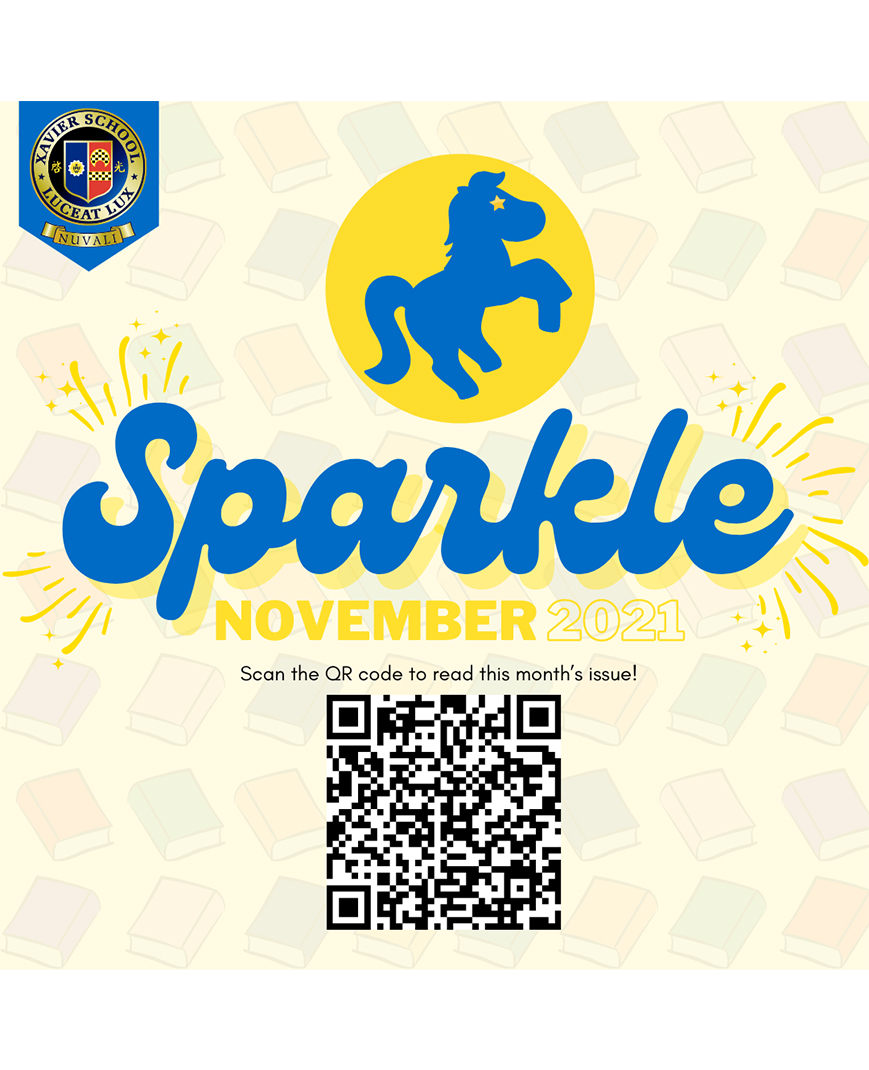
Our knowledge about our world is something that is constantly expanding, deepening, and changing. Scientists and researchers have been the key individuals in expanding our knowledge through the research that they do. Research is a systematic and organized investigation with the goal to discover and test solutions and expand our general knowledge of the world around us. Projects of importance such as these require lots of time and funding. It is also essential to pass this on to the next generation so that what we know never stops expanding.
This is probably why even as students, we are encouraged and required to start conducting simple and basic research as early as grade school in the hope that we will grow to appreciate its importance and applications in our everyday lives. As Senior High School students, research is still a big part of our academic life and probably now, even more so than ever before.
Xavier School makes it a point to offer its students multidimensional learning. Aside from the simple day-to-day class lectures, the different educational departments strive to invite experts in different fields to give enlightening talks about their specialties and their experiences in their profession. In the talk given last November 23, 2021, the Science Department invited Ms. Faith Maranan, a Biology major and Master of Science in Molecular Biology and Biotechnology of UP Los Banos, to give a talk to STEM and other interested Senior High School students. Ms. Faith imparted to us the importance of research in understanding biodiversity. She stressed the importance of all research, both basic and applied because they all have their uses. Even the most basic of researches may be a springboard to more advanced research. She noted that one of the main reasons why research is so essential is because they provide people with a greater understanding of certain topics. It is also important to understand why research is so essential because research, in itself, is not easy. It tests the researcher and can sometimes push the researcher to the limits of their perseverance. In situations like these, it’s important for the researcher to see and understand the value of what they are doing so that they don’t give up.
To give us an example, Ms. Faith talked about how she uses Molecular Ecology to try to do research on how they can restore degraded ecosystems, specifically about her research on Hoya and DNA barcodes. The plant Hoya is an epiphytic plant, meaning that it grows on other plants, and they were able to differentiate this species from other species of the plant through the corona, corolla, and pollinarium features of the plant. These are basically their reproductive features. According to Ms. Faith, the Hoya plant has some medicinal properties like antiseptic properties, pneumonia detoxification, etc. and it is also very aesthetically pleasing. Aside from this, some species of Hoya are said to exhibit plasticity meaning that different species of Hoya can exhibit different morphological traits depending on their environment. Because the plant has such a limited geographical range, they are prone to extinction and one way to protect this endangered plant species is through DNA barcoding.
DNA barcodes are quite similar to the barcodes used in supermarkets and retail stores. The barcodes quickly identify the item being purchased. In the case of DNA barcodes, they identify the species being studied. DNA barcoding uses a short DNA sequence, about 400-800 DNA base pairs of DNA, to identify and differentiate various species of plants and animals. The DNA barcode provides a quicker and more accurate identification, which allows scientists and authorities to protect endangered species from being exploited and used improperly. Currently, the database has around 13,512,333 specimen records and hopefully, the database will continue to grow and expand so that it may protect and preserve even more species and it may aid more researchers in their study into biodiversity.
As research is also a big part of our academic curriculum, Ms. Faith ended her talk with some timely tips and advice for us, Senior High School students, in our journey delving deeper into research. She stressed that before even beginning research, honesty and self-awareness are important. Through honesty and self-awareness, it will be much easier for us to decide on a topic and know our own physical limits while doing the research. She reminded us that conducting research is hard and we will encounter trials along the way but it’s important that we keep in mind that we should be kind to ourselves. Give ourselves time to adjust to what we are doing and be humble in acknowledging that we don’t have all the answers. These things will help us in being able to continue the research and continue persevering no matter what difficulties we face. Even if the results are not to our liking, we should never try to “doctor” or change the results to suit our own interests. Since research is about expanding our knowledge, our duty as researchers is to simply communicate and record the findings, not to try and change or manipulate them for personal gain. Last and probably the most important is that we must always remember to enjoy learning because, from this, research will seem less like a chore or an undesirable task.
Fortunately or unfortunately, research is a major part of passing senior high and moving onto college and even then, it’s still a big hurdle we have to overcome. It’s normal for us to be scared or anxious for what’s to come especially since some of us have had negative experiences with research in the past but this is what makes this talk and Ms. Faith’s advice so timely. This talk helped us to realize that what we are learning about research has its own importance and that no research that we do is useless. It makes us look at the research we are doing and the ones we will do with a whole new set of eyes and a new perspective. Now we see that even the small things we conduct may lead to even bigger findings in the future and this can help motivate us to keep going in our research process. This talk has given us a deeper appreciation for learning, research, and its application in aiding and preserving biodiversity. Perhaps more importantly, Ms. Faith has given us motivation and encouragement to keep persevering especially in the trials to come in the next chapters of our lives.
Article by: Raissa Katerina R. Gan
 Xavier School Nuvali
Xavier School Nuvali 

